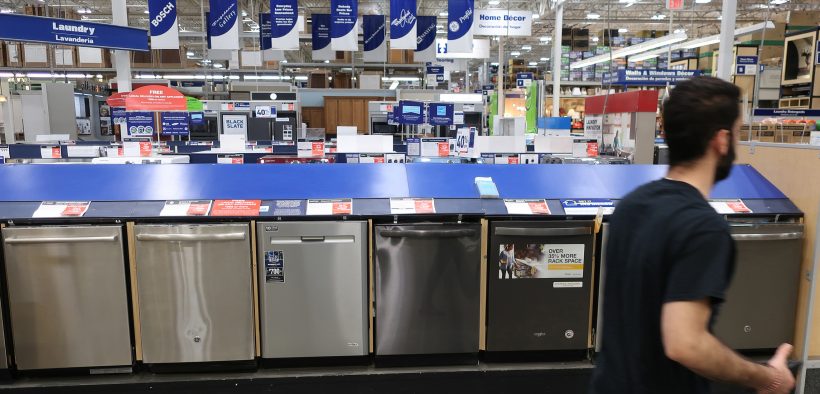A dishwasher decision that is great news for consumers
Share

A recent court ruling set new limits on the power of federal bureaucrats to impose unwanted mandates on consumer appliances.
In a Jan. 8 decision, the Fifth Circuit Court of Appeals found that Department of Energy regulators had failed to consider whether their regulations aimed at saving energy would actually work — and, specifically, how people would respond to federal mandates that make it harder for dishwashers to do their job. In the real world, when it takes a dishwasher hours to run through a cleaning cycle, it should be no surprise that many people might opt to hand-wash dishes or run the dishwasher multiple times — consuming even more energy and water than before. The regulators ignored the problem they had created: namely, that their regulations actually created new inefficiencies.
The court also found that the Energy Department had failed to consider whether cycle time was an important characteristic of dishwashers (spoiler alert: yes), even though it should have considered this.
Perhaps most significantly, the court found that the regulators had taken such an expansive view of their own authority that the Department of Energy may have been improperly regulating other consumer appliances for decades.
The trouble started when Energy Department bureaucrats revamped federal regulations to require dishwashers to use less water and less energy than in years past, even though weakening the power of the dishwasher makes dishwashing less effective. To obey those mandates, manufacturers created dishwashers with longer cleaning cycles — lasting more than three hours in some cases. A similar scenario played out for clothes washers and dryers, which now don’t work as well as they used to but do take longer to do the job.
In other words, these regulations dampened a central incentive of appliance manufacturers, namely, to provide products that consumers want. But regulators lack that motivation; sometimes, they act as if they know more about what consumers want than consumers do.
By 2018, however, a consumer outcry along with a Competitive Enterprise Institute petition to the agency led to regulatory reform. That year, the Department of Energy adopted new regulations that let dishwasher manufacturers offer a wider array of appliances with quicker washing cycles.
Unfortunately, the Biden administration — on its first day in office — ordered the Department of Energy to reverse course and repeal its 2018 reforms. This attempt to roll back innovation and consumer choice was met by lawsuits from a dozen states, culminating in the Fifth Circuit’s decision earlier this month.
The upshot is that, eventually, the Energy Department will have to propose and issue a new rule about dishwashers. This time, that rule will have to follow the law. But whether the new rule will allow more dishwasher innovation (and shorter cleaning cycles) is still an open question. That’s because regulators still won’t care about what consumers want.
In that sense, the Energy Department bureaucrats resemble a 20th-century relic: the government telephone monopoly. My favorite part of Saturday Night Live has always been the fake television commercials, especially the one featuring the delightful Lily Tomlin as Ernestine, the AT&T operator. In stark contrast to the feel-good corporate ads that once pervaded network television — that explained how much their sponsors cared about you — Ernestine smirked into the screen and explained, “We don’t care. We don’t have to. We’re the phone company.”
AT&T’s monopoly privileges were the status quo until the 1980s when advances in technology made it feasible for phone monopolies to break into competitive enterprises that offered innovations and lower prices. These days, you can choose what phone to buy, what features you want, and what price to pay. Now, the phone company has to care about you, at least a little bit, or else they risk that you’ll break up with them and move to another provider.
CLICK HERE TO READ MORE FROM THE WASHINGTON EXAMINER
Like the old Ma Bell monopoly, sometimes the motto for regulators seems to be: “We don’t care. We don’t have to. Unless we do our job so badly that a judge has to tell us how to do it.”
Now, the Department of Energy must go back to the drawing board and produce new regulations. Will they be any better than the old ones? One reason for optimism is that this time, the department has been forcefully reminded that it’s being watched.
Dan Greenberg is the general counsel for the Competitive Enterprise Institute.
Continue Reading at The Washington Examiner.













